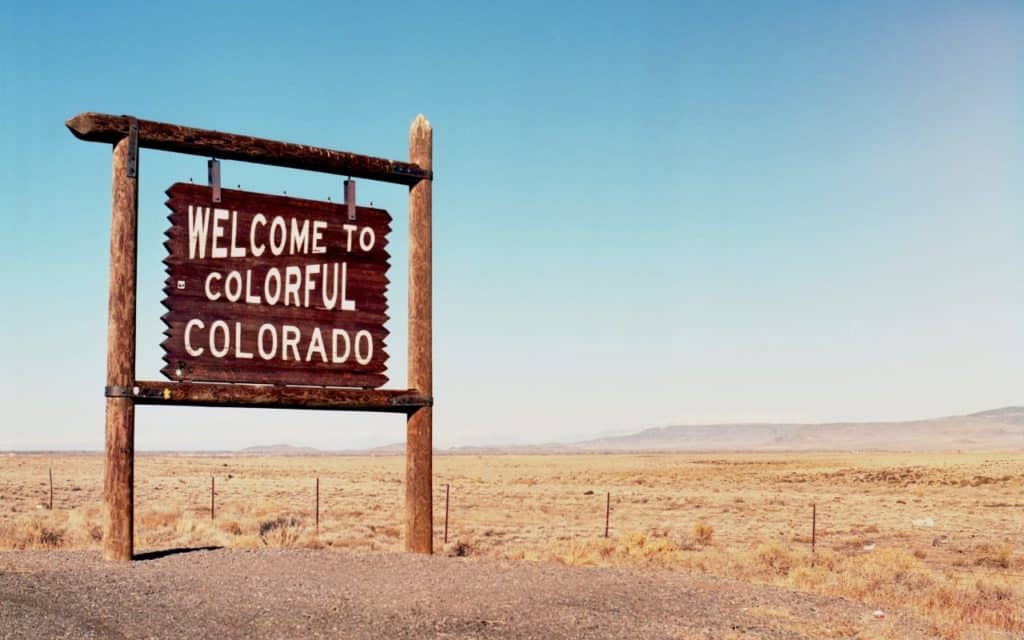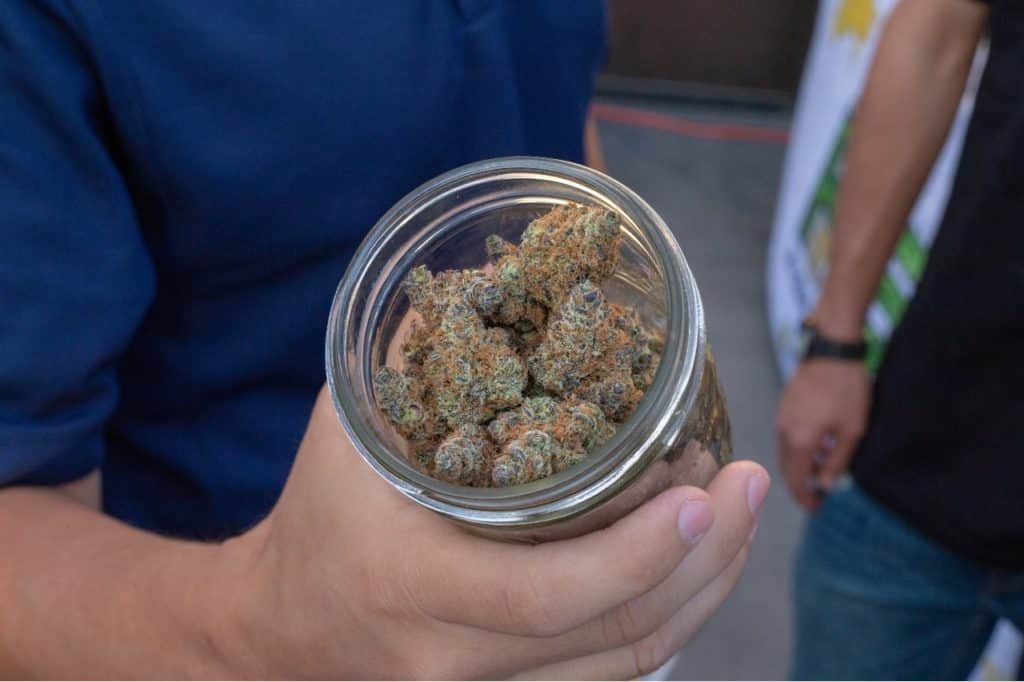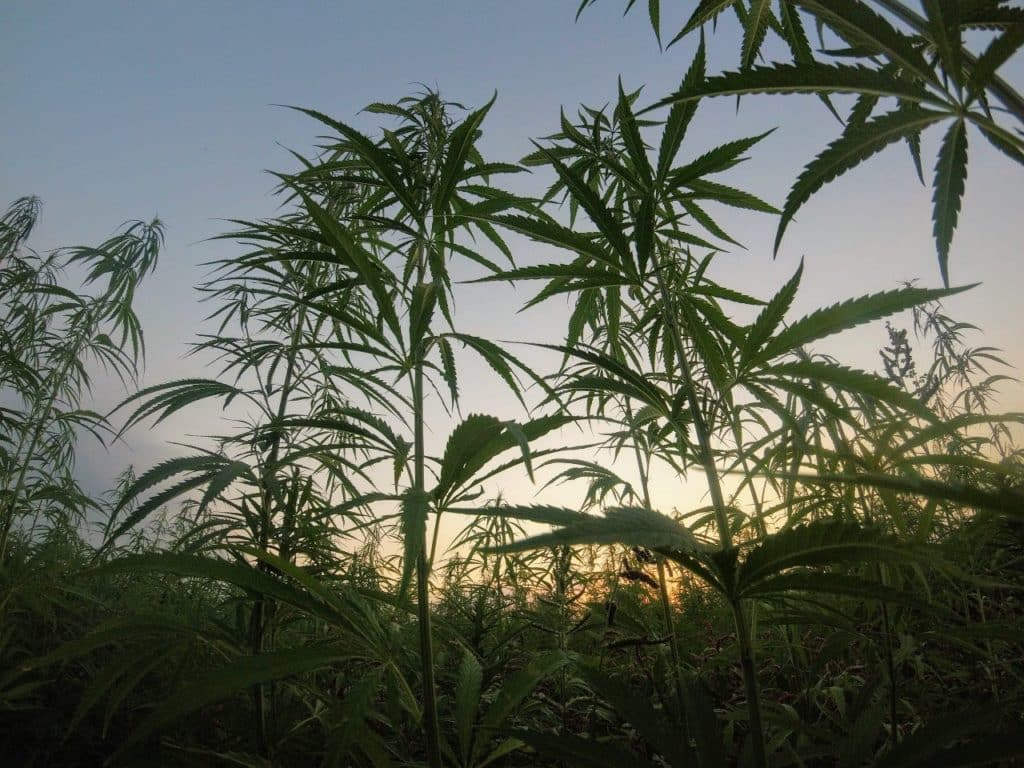2022 Colorado Marijuana Laws, Rules and Regulations

Most people know that Colorado was one of the earliest adopters of lax cannabis laws. This is true, but it is also a very small part of the picture. Even though marijuana is legal in Colorado, there are still laws and regulations that everyone needs to follow to avoid finding themselves in hot water.
Below we go over Colorado’s marijuana laws and common questions that will help you avoid trouble and enjoy your Colorado cannabis experience safely.
1. Marijuana Legality
Colorado became a pretty early adopter of medical cannabis (behind just a few states like California) in legalizing medical marijuana through a ballot measure in 2000. However, they were completely ahead of the pack in 2012 when they became the first state to pass statewide blanket legislation legalizing cannabis.
Every year since then more and more states have gone green, but it’s clear that they owe much to Colorado for paving the way.
2. Cannabis Consumption Age Limits
While marijuana is legal in Colorado, there are age restrictions you will need to adhere to in order to remain in compliance with the law.
The rules for cannabis consumption in Colorado are similar to alcohol regulations. To buy cannabis recreationally, you need to be at least twenty-one years of age and be in possession of a valid, state-issued ID.
To purchase cannabis medically, you need to be 18 or older, and in possession of a Colorado state-issued medical card.
3. Purchasing Marijuana Laws
While cannabis is legal now, there are very specific rules on how and where you can buy it. To stay on the right side of the law, all sales need to go through authorized, regulated channels.

Where can you purchase marijuana?
Currently, cannabis sales in Colorado must take place in properly licensed Colorado dispensaries. While you may find businesses (like delivery services) advertising alternative methods of purchasing cannabis, you should approach these opportunities with caution. Many are not legally compliant and can result in trouble for both you and the business operators.
What laws surround marijuana dispensaries?
All Colorado marijuana dispensaries must be fully licensed and inspected by the communities that they are serving. It is also worth noting that recreational and medical sales require different licensing accommodations. This means that medical dispensaries may not be authorized to sell recreational cannabis and vice versa.
Who can sell marijuana?
With the aforementioned rules in consideration, no one can legally sell cannabis on the streets. There are some businesses that have tried to get around the Colorado cannabis licensing rules by (for example) packaging their services as a gift subscription, whereas buyers pay monthly to receive gifts that just happen to always be cannabis.
While it may be tempting to circumnavigate the Colorado sales laws to avoid the hefty taxes, doing so will almost definitely put you out of compliance with the law.
How much marijuana can you purchase and have in possession at one time?
You can currently purchase up to one ounce of recreational cannabis in Colorado at a time. However, if you are a medical patient, that number doubles to two ounces.
How many edibles or concentrates can you have in possession at one time?
Presently, Colorado allows individuals to have up to 8 grams of concentrates at a time and edibles containing no more than 800 milligrams of THC.
What is the Colorado Marijuana Tax rate?
Recreational marijuana is subject to a 15% tax rate, while the medical tax rate comes in at just 2.9% (2.9% is the tax rate for all purchases in Colorado).
4. Marijuana Delivery Laws
As briefly alluded to earlier, all cannabis sales in Colorado must be made through the legally approved channels of an authorized dispensary. By extension of this, all forms of delivery are, at this time, illegal.
As per our previous article: “A law was passed in 2019 that allows medical marijuana delivery, but many cities haven’t bought into the law. As of now, only the cities of Boulder and Superior have enacted this law. In these cities, there are currently are only two dispensaries legally permitted to offer marijuana delivery, Native Roots Cannabis Co. and Helping Hands Cannabis.
The caveat in this situation is that it is only for “MEDICAL” use, meaning you’re not allowed to purchase recreational cannabis through delivery.”
So, if you happen to live in Boulder or Superior, and are yourself properly licensed, you may benefit from the convenience of cannabis delivery. Otherwise, it’s best to abstain, even though you will find businesses advertising the service in your area.
Illegal delivery services have been linked to robberies, and other crimes, so it is best to avoid them.
5. Marijuana Consumption Laws
Once you have the cannabis, there are even more rules dictating where you can use it. Below you will find some guidelines dictating where and when you can use cannabis.

Where can you smoke marijuana in Colorado?
Currently, you can only smoke (or eat, dab, vaporize, etc.) cannabis from the safety and comfort of a private residence. This means that there may be civil or criminal penalties for being caught smoking on the street or in a public park.
Can I have marijuana paraphernalia?
Per 18-18-428 CRS it is considered a petty offense to have anything that could be considered drug paraphernalia. The law goes on to list spoons, bowls, and other apparatuses commonly associated with cannabis consumption.
Of course, anyone who has ever been in a headshop that completely refuses to permit the reference of cannabis within the walls of their store knows that there is a degree of ambiguity to this. Most cannabis pipes can also be used for tobacco which means if there is no THC residue on your pipe you may circumnavigate trouble.
If you can’t get off on a technicality, the penalty is not severe. Conviction of this violation results in a maximum fine of $100.
6. Growing Marijuana & Hemp Laws
Growing your marijuana is a great way to save a ton of money. If you plan on going this route, just make sure you are in total compliance with the local laws.

Who can grow marijuana in Colorado?
Growing commercially for resale purposes requires a lot of (very expensive) licensing, as well as compliance with a wide range of other regulatory standards. However, Colorado also allows for personal growing, which comes with rules that are easier to satisfy.
How much marijuana can you grow at home?
Presently, Colorado residents aged twenty-one or over are allowed to grow up to three flowering plants at a time. However, if you have multiple adults living in your residents, that number increases by three plants per adult.
The maximum number of plants you can have regardless of how many adults are living in your house is twelve. These plants must be kept out of view (meaning they cannot be planted outdoors) and must be secured so that minors cannot access them.
What’s the difference between commercial growing compared to growing at home?
Commercial growing is done with the express purpose of resale. As previously mentioned, the rules surrounding this process are stiff. Growing at home is meant for personal use only, and cannot be done with the intention of resale.
What laws surrounding growing Hemp?
Colorado hemp laws are effectively identical to marijuana plants. You may grow hemp, but you are subject to the same limitations. You also still need to make sure that the plants are out of sight, and inaccessible by minors.
7. Driving High or Under the Influence of Cannabis
It is not legal to drive under the influence of cannabis in Colorado.

What’s the legal limit for driving high?
The current legal limit for driving in Colorado is five nanograms. We know, right? Most cannabis users don’t measure their intake in nanograms. The limit refers to how much THC is present in your blood.
THC passes pretty quickly through your blood, but at the same time, it will accumulate if you are a habitual user. This means that you could be found to be over the limit, even if you haven’t smoked in 5-6 hours.
To that end, it is very hard to completely avoid surpassing the limit for driving. However, for the purposes of public safety and legal compliance, it is very important to avoid driving under the influence.
Habitual users can further avoid trouble by maintaining practices that would prevent the suspicion of a DUI. This includes cautious driving, compliance with traffic laws, and careful adherence to the rules that dictate the transportation of marijuana.
Can you get a DUI for marijuana?
If you are found to be over the limit, the resulting penalty is an automatic DUI. A cannabis-related DUI will result in the same types of punishments associated with alcohol, though they may be easier to protest in court because the testing method is less accurate.
8. Airports and Marijuana
Many may wish to travel with cannabis. While the temptation to do this is natural (especially for cannabis tourists that live in states with stricter laws) there are rules surrounding transportation at airports.

Can you fly with marijuana?
Airports may ultimately make their own policies regarding cannabis. Denver airport has a blanket policy prohibiting traveling with marijuana. While some Colorado airports may have slightly laxer rules, prohibition is the general policy.
Furthermore, it is always illegal to travel out of state with cannabis.
9. Driving and Transporting Marijuana
Transporting marijuana is legal, so long as it is done in a sealed container. Of course, you still cannot drive out of state with legal Colorado cannabis.
10. Federal Lands & National Parks in Colorado
There is legislation heading to the senate that would legalize cannabis on a federal level.

However, while that law is pending, cannabis use or possession of any kind (even in legal states) on Federal property is still a crime. This means that you cannot legally own cannabis in a national park—even if it is properly sealed and handled.
Colorado Marijuana Offenses and Penalties
Possession of Cannabis in Colorado
No penalty:
Possession of cannabis coming in at one ounce or less is legally compliant and will not result in any penalty.
Misdemeanor:
Possession of between 2-12 ounces is a misdemeanor that can result in a fine of up to $5000 (not to be less than $700) and up to a year and a half in jail.
Felony:
Felony possession constitutes ownership of 12 or more ounces of cannabis. Those found guilty of felony possession face a fine of up to $100,000, and up to two years in jail.
Possession of Hash & Concentrates in Colorado
No penalty:
Possession of hash or concentrates is subject to the same laws as cannabis flower. Coloradans are allowed to possess up to one ounce of hash or concentrates without any fear of punishment.
Misdemeanor:
Possession of more than one ounce but less than three is considered a misdemeanor. Those found guilty face a fine of up to $5000, and anywhere from 6-18 months in jail.
Felony:
Felony possession constitutes ownership of more than three ounces of hash and/or concentrates. A subsequent conviction could result in between 6 months to 2 years of imprisonment, and a fine of up to $100,000.
Cultivation in Colorado
No penalty:
As mentioned before, cultivation is legal to the point of six plants, three of which are allowed to be flowering at a time per adult. The ultimate limit is 12 plants, regardless of how many adults there are in the home.
Misdemeanor:
There is actually no legal category for misdemeanor cultivation. Those found and convicted of growing more than six plants are immediately bumped into the felony category.
Felony:
Felony charges for improper cultivation are broken up into two brackets. Home growers in possession of thirty plants or less face between 6 months and 2 years of jail time if convicted. Their fine may be up to $100,000.
Individuals found to have more than 30 plants also face felony status, but may spend between 2-4 years in jail. Their fine may be up to $500,000.
Sale & Distribution
No penalty:
Sale or distribution of cannabis by anyone other than an authorized dispensary is always illegal and may result in a fine, or even jail time.
Misdemeanor:
The sale or distribution of cannabis amounting to less than two ounces will result in a fine of up to $5000, as well as a possible sentence of between 6-18 months in jail.
Felony:
Several different tiers constitute felony status when it comes to the unlawful sale and distribution of cannabis in Colorado.
Sale of more than two ounces but less than six face a potential felony conviction that may result in between 6 months, or up to 2 years of jail time. They will also be subject to fees of up to $100,000.
Those found to be selling or distributing cannabis that amounts to between 6 ounces and 2.5 pounds may face between 2-6 years in prison, and a fine of up to $500,000.
Sale or distribution of 2.5-25 pounds is a felony that can result in between 4-16 years in prison, with a fine of up to $750,000.
More than 25 pounds lands you in the highest tier for sales and distribution of cannabis. At this level, you face between 8-32 years in prison and a fine of up to $1,000,000.
Readers should, however, note that all of these punishments pertain only to adults. Minors under the age of 18 sort their sentencing out in juvenile court and will face much smaller punishments.
- Psilocybin Mushrooms in Colorado | Is It Legal & Where You Can Get Some - April 20, 2024
- Weed Measurements Guide: Marijuana Quantities, Weights & Prices - July 1, 2023
- Moldy Weed | Risks, Identification, and Smoking Safety - June 24, 2023
